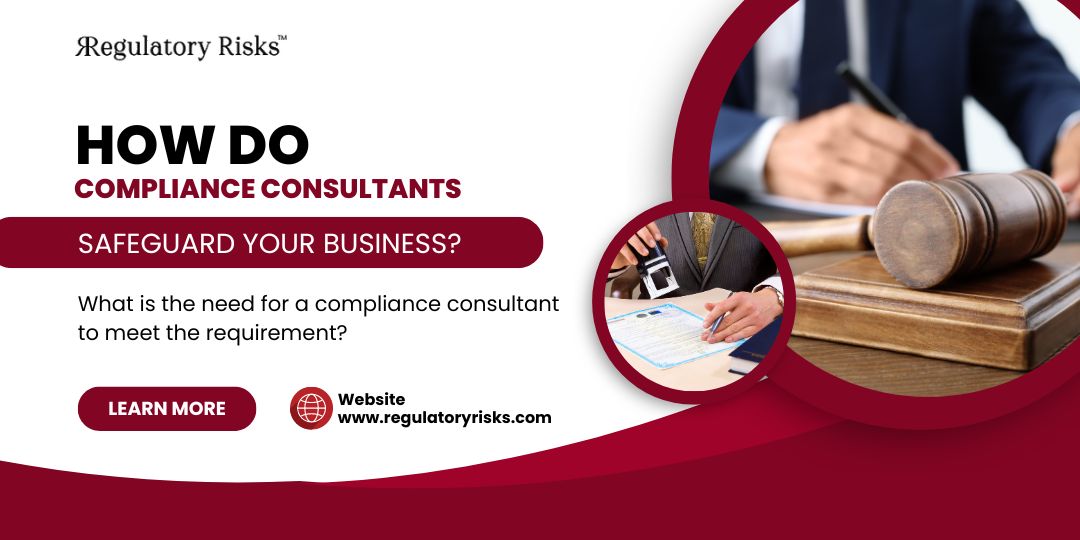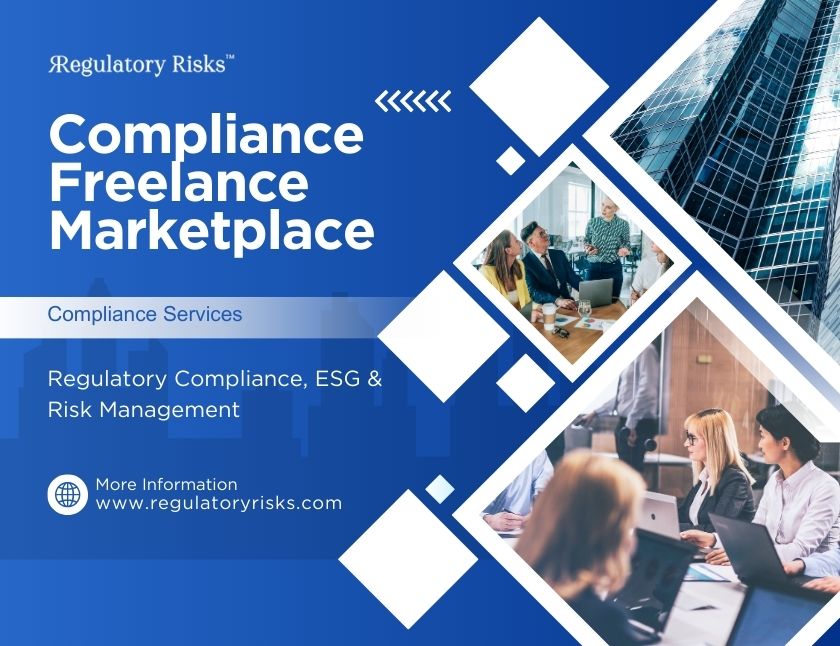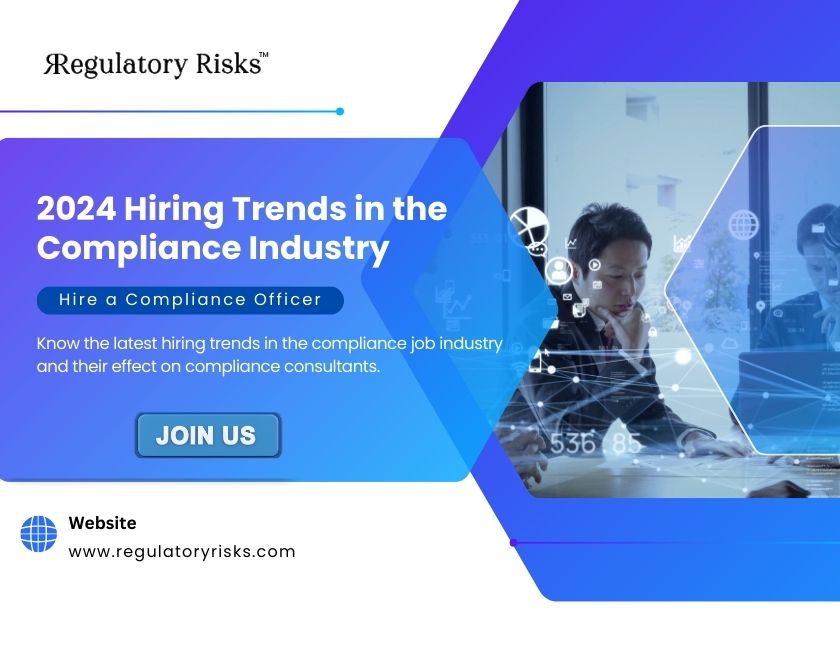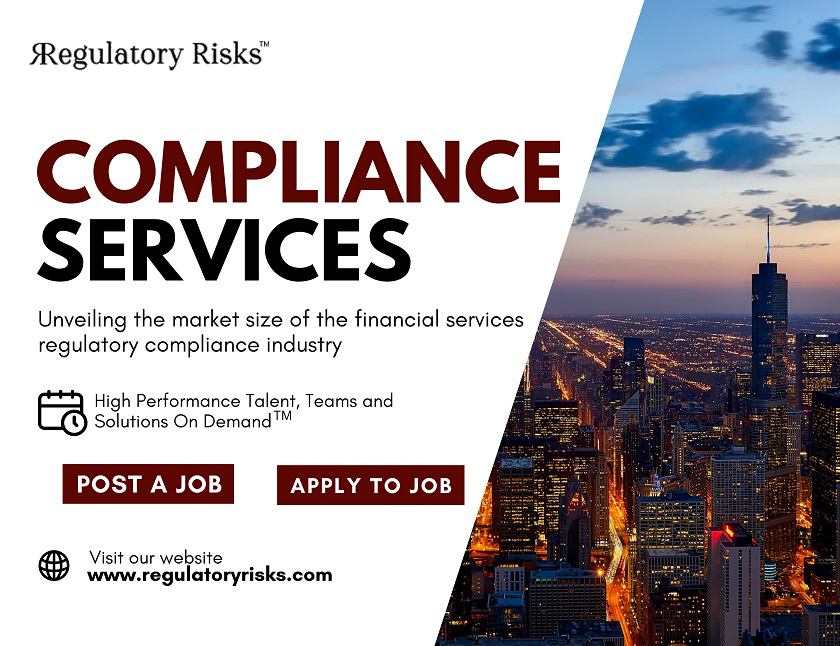As organizations navigate complex regulatory environments, the need for comprehensive Compliance consultants and the expertise of a compliance officer is high. There are multiple ways in which Compliance professionals not only protect your business but also play a crucial role in shaping Compliance Jobs and defining the role of a Chief Compliance Officer. Therefore, if you are looking to gain more information on compliance services, going through this blog will be beneficial for your organization.
What is the need for a compliance consultant to meet the requirement?
Compliance with laws and legal standards is not just a requirement; it's safeguarding your business for long-term success. This is where the role of Compliance services providers becomes indispensable. It is about providing not just Services, but a comprehensive approach to navigating the complexities of the regulatory landscape.
Research and Interpretation
Compliance Consultants are often the architects of Compliance Jobs, engaging in continuous research, and staying up-to-date with the latest laws and regulations. This approach allows them to interpret regulations accurately, providing organizations with insights into compliance requirements and potential implications. This expertise is crucial when organizations decide to hire a compliance officer.
Implementation
While you hire a compliance officer, your business will be in safe hands regarding compliance regulations. Moreover, armed with a deep understanding of regulatory requirements. Hence, consultants prefer to collaborate with organizations to implement robust processes and policies. Therefore, this ensures that every part of the business meets the applicable laws and regulations, reducing legal complications.
Identification of Risks
The role of Compliance assistants is almost similar to Compliance Officers. They take on the responsibility of detecting risks within an organization. Therefore, they conduct thorough assessments, identifying potential risks related to regulatory non-compliance. Hence, by analyzing existing processes, documentation, and controls, professionals offering compliance identify vulnerabilities that could expose the business to legal complexities.
Compliance risk reduction Strategies
Once risks are identified, consultants collaborate with the organization to develop and implement effective strategies to reduce the risk. Therefore, it involves conducting targeted training programs, refining operational controls, and improving monitoring mechanisms. The main motive is to strengthen the organization against potential risks. Moreover, it also ensures a bold stance toward compliance. This approach is essential for organizations looking to hire a Chief Compliance Officer to steer them through regulatory challenges.
Training and Education
Educating employees is a prime factor. Compliance professionals organize training sessions to raise awareness about compliance standards, ethical considerations, and the consequences of non-compliance. These educational initiatives empower employees to make informed decisions, fostering a workplace culture that values ethics and compliance.
Internal Audits
To maintain a strong compliance framework, Compliance officers often conduct internal audits. By carefully reviewing processes, documentation, and controls, these audits serve as a great measure, of identifying areas of improvement. Moreover, it also ensures that the organization's compliance efforts remain effective.
Surveying the Changes
The regulatory landscape is dynamic, with laws and standards constantly evolving. Therefore, compliance professionals stay updated on these changes. This proactive approach allows organizations to adapt their compliance strategies promptly. Hence, reducing the risk of non-compliance due to outdated practices.
Maintaining record
Consultants assist organizations in maintaining comprehensive records of compliance efforts, audits, and corrective actions. Therefore, this documentation not only demonstrates a commitment to compliance but also serves as tangible evidence in the event of regulatory inquiries.
Reporting
Professionals for Compliance work closely with a Chief Compliance Officer, and take charge of preparing and submitting reports to regulatory bodies as required. This commitment to transparency reinforces the organization's accountability and builds trust with regulatory authorities. Reporting becomes a proactive measure, showcasing the organization's commitment to compliance.
Responsive Planning
No organization is immune to challenges, and Compliance advisors, in collaboration with a Chief Compliance Officer, are instrumental in developing crisis management plans. In the event of compliance issues or regulatory breaches, consultants work with the organization to formulate effective response plans. These plans encompass communication strategies, corrective actions, and preventive measures to mitigate future risks.
What is the function of compliance consultants in a business?
To run an organization successfully, it is important to follow the rules and regulations set by the government. This is why compliance services turn out to be important. Hence here is detailed information on the role that these professionals play in an organization.
Regulatory Compliance
Professionals in compliance jobs search into the intricacies of relevant laws and regulations impacting their clients' industries. Through ongoing research, they interpret these regulations and analyze their implications for the organization. Once the regulatory landscape is understood, consultants work closely with the organization to implement robust processes and policies that ensure compliance with the applicable laws and regulations.
Risk Management
One of the core responsibilities of compliance officers is to identify potential risks associated with regulatory non-compliance. They assess existing processes, identify vulnerabilities, and collaborate with the organization or business to develop effective strategies for risk simplification. This involves creating training programs, refining documentation, and enhancing monitoring mechanisms to address and minimize compliance risks efficiently.
Ethical Standard
Compliance advisors contribute to the establishment and reinforcement of ethical standards within organizations. They actively participate in the development and enforcement of a comprehensive code of conduct for employees. Additionally, consultants organize training sessions to educate employees on compliance standards, ethical considerations, and the potential consequences of non-compliance, fostering a culture of integrity within the organization.
Documentation and Reporting
Thorough documentation is a cornerstone of effective compliance. Consultants assist organizations in maintaining comprehensive records of compliance efforts, audits, and corrective actions. This detailed recordkeeping serves as substantial evidence of compliance with regulatory authorities. Additionally, compliance assistants also prepare and submit reports to regulatory bodies as required, supporting transparency and accountability.
Compliance Consultants with their multifaceted approach, serve as guardians of business integrity and sustainability. Therefore, when you plan to hire a compliance officer, they play a pivotal role in guiding organizations through complex regulatory landscapes. By partnering with Compliance advisors, organizations not only meet their legal obligations but also build a strong foundation for long-term success. Whether it's strengthening Compliance Services, hiring a Compliance Officer, or appointing a Chief Compliance Officer, the measures you take today will ensure a secure and ethical future for businesses.




